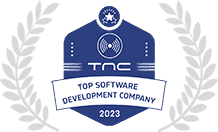NetSuite is a powerful cloud-based business management platform designed to streamline and manage various business processes like accounting, inventory management, customer relationship management (CRM), and e-commerce. This guide aims to provide a clear and practical introduction to NetSuite, explaining what it is, how it works, and why businesses are increasingly adopting this solution to enhance their operations.
Table of Contents
ToggleWhat is NetSuite?
NetSuite is a unified cloud-based Enterprise Resource Planning (ERP) software that helps organizations manage core business processes from a single platform. Developed by Oracle, it integrates various business functions like finance, operations, HR, and more, providing a centralized solution to drive efficiency and growth.
With its cloud-based architecture, NetSuite eliminates the need for businesses to rely on multiple software tools. It offers real-time visibility into all aspects of your business, enabling better decision-making and a higher level of automation.
Key Features of NetSuite
- Cloud-based Accessibility: Access NetSuite from any location with internet, supporting remote teams and global operations.
- Real-time Analytics: Comprehensive dashboards and reporting tools that provide instant insights into business performance.
- Modular Design: NetSuite offers various modules like CRM, financial management, and e-commerce, which can be customized to fit your business needs.
- Scalability: Suitable for startups to large enterprises, allowing businesses to scale their operations without outgrowing the platform.
How Does NetSuite Work?
NetSuite’s Functionality and Integration
NetSuite operates by integrating various business processes into one seamless system, ensuring that data flows smoothly across departments. It offers a range of modules that work together to automate and optimize operations.
Core Modules of NetSuite
- Financial Management: Includes features like accounting, financial close, tax management, and revenue recognition.
- Customer Relationship Management (CRM): Manages customer data, sales, marketing, and customer service.
- Inventory and Supply Chain Management: Automates inventory tracking, demand planning, and procurement.
- E-commerce: Offers tools to build and manage online stores with integrated ERP and CRM functionalities.
- HR and Payroll: Supports human resource functions such as payroll, employee records, and performance tracking.
Why Use NetSuite for Your Business?
NetSuite is known for offering comprehensive solutions that help businesses grow without the need for multiple software tools. Here are some of the key reasons companies choose NetSuite:
Benefits of Using NetSuite
- Unified Platform: Manage everything from one platform, reducing the complexity of handling multiple systems.
- Cost-Effective: With cloud-based solutions, you save on IT infrastructure, software upgrades, and maintenance costs.
- Scalability: NetSuite grows with your business, supporting both small and large operations.
- Customizable: Tailor NetSuite’s modules to match the unique needs of your organization.
- Global Reach: Handle multiple currencies, languages, and tax regulations for international businesses.
The Seed Keyword: NetSuite ERP Explained
What is NetSuite ERP?
NetSuite ERP is the core module of the NetSuite platform, providing businesses with a comprehensive suite of tools to manage financials, procurement, order management, and more. As an ERP system, it consolidates data from all departments, offering real-time insights and automation to streamline operations.
Key Features of NetSuite ERP
- Financial Reporting: Accurate financial statements that comply with global accounting standards.
- Order and Billing Management: Automates order processing and billing cycles, reducing manual work.
- Supply Chain Optimization: Ensures that inventory levels are optimized and aligned with customer demand.
- Multi-Currency Support: For businesses operating globally, NetSuite ERP simplifies handling different currencies and exchange rates.
How NetSuite Integrates with Other Business Software
NetSuite offers seamless integration with other software systems, ensuring that all your business data can be accessed and managed from a single platform. This integration enhances collaboration between departments and improves overall operational efficiency.
Key Integration Points
- Third-Party Software Integration: NetSuite can connect with popular software solutions like Salesforce, Shopify, and PayPal.
- API Integration: Custom integrations are possible through NetSuite’s APIs, allowing businesses to link it with other in-house tools or third-party applications.
- Real-Time Data Synchronization: Ensures that information is updated across all platforms, reducing the risk of errors and data duplication.
NetSuite’s Role in Supporting Global Businesses
NetSuite is designed with global businesses in mind. Its multi-currency, multi-language, and multi-tax capabilities make it a valuable tool for companies with international operations.
Global Features of NetSuite
- Currency Conversion: Handles multiple currencies, converting them based on real-time exchange rates.
- Tax Compliance: Adheres to local tax regulations in various countries, ensuring compliance across borders.
- Multi-Language Support: Users can access the system in different languages, making it easier to operate in non-English speaking regions.
NetSuite for Startups: Is It Worth the Investment?
Startups often face the challenge of balancing growth with limited resources. NetSuite offers a scalable solution that adapts to the needs of businesses at every stage of their growth journey.
Why Startups Choose NetSuite
- Affordability: The cloud-based model eliminates upfront costs for hardware and IT support.
- Ease of Use: The platform is user-friendly, allowing startups to implement the solution quickly.
- Automation: Startups benefit from automated processes like invoicing and payroll, allowing them to focus on growth.
- Scalability: As the startup grows, NetSuite can scale with it, providing more features and functionalities as needed.
The Role of NetSuite in Streamlining Financial Operations
One of the primary reasons businesses choose NetSuite is its ability to automate and streamline financial operations.
Financial Features of NetSuite
- General Ledger: Provides a centralized platform to manage and track all financial transactions.
- Accounts Payable and Receivable: Automates invoicing, payment tracking, and collections.
- Budgeting and Forecasting: Advanced tools for planning and managing budgets.
These financial tools help businesses avoid errors, reduce manual work, and ensure accurate reporting.
NetSuite vs. Competitors: How Does It Stand Out?
There are several ERP systems on the market, but NetSuite distinguishes itself in several ways:
Key Differences Between NetSuite and Competitors
- Cloud-Native: Unlike traditional on-premise ERP systems, NetSuite is built entirely in the cloud.
- Modular Flexibility: Businesses can choose and customize modules based on their unique needs.
- Continuous Upgrades: Oracle releases regular updates to ensure NetSuite stays ahead in terms of technology and security.
- Comprehensive Reporting: NetSuite offers advanced reporting capabilities, giving businesses insights across all operations.
NetSuite’s Role in E-commerce Success
For businesses with an online presence, NetSuite offers robust e-commerce features. Its unified system connects your e-commerce store with back-office operations, ensuring that orders, inventory, and customer service are aligned.
E-commerce Features in NetSuite
- Integrated Shopping Cart: NetSuite’s platform offers a fully integrated shopping cart that syncs with inventory and financial data.
- Real-Time Inventory Updates: Ensure that your stock levels are always accurate and updated.
- Customer Management: Capture customer data and analyze their behavior for better-targeted marketing efforts.
React Native and NetSuite Integration
Although React Native is primarily a framework for mobile app development, it can be integrated with NetSuite to build custom mobile applications that interact with the NetSuite platform. This allows businesses to extend NetSuite’s capabilities to mobile devices, offering better accessibility and functionality for teams on the go.
Why Integrate React Native with NetSuite?
- Custom Mobile Apps: React Native allows businesses to build mobile apps that connect directly to their NetSuite ERP, enabling real-time data access and management.
- Enhanced User Experience: A mobile interface built with React Native can offer a more user-friendly and intuitive experience for employees who need to access NetSuite data from the field.
- Cross-Platform Flexibility: With React Native, businesses can develop apps for both iOS and Android, ensuring that all users can benefit from mobile access to NetSuite.
20 Unique FAQs about NetSuite
1. What is NetSuite used for?
NetSuite is a cloud-based business management platform used for managing financials, inventory, CRM, e-commerce, and more.
2. Is NetSuite suitable for small businesses?
Yes, NetSuite is highly scalable and can be customized to fit the needs of small businesses.
3. How much does NetSuite cost?
NetSuite pricing varies based on the modules and features required, with custom pricing for each business.
4. Can NetSuite be integrated with other software?
Yes, NetSuite supports integration with a wide range of third-party software like Salesforce and Shopify.
5. How does NetSuite handle multiple currencies?
NetSuite automatically converts currencies based on real-time exchange rates and supports multi-currency transactions.
6. What industries use NetSuite?
NetSuite is used across various industries, including retail, manufacturing, healthcare, and professional services.
7. Is NetSuite available globally?
Yes, NetSuite is a global solution that supports multiple languages, currencies, and tax regulations, making it suitable for international businesses.
8. What are NetSuite’s core modules?
NetSuite offers several core modules, including financial management, CRM, inventory management, e-commerce, and human resources.
9. How is NetSuite different from other ERP systems?
NetSuite is a cloud-native ERP system with modular flexibility, real-time data visibility, and continuous updates, which sets it apart from traditional on-premise ERP solutions.
10. Can I customize NetSuite?
Yes, NetSuite is highly customizable. Businesses can choose modules that suit their needs and configure workflows, reports, and dashboards to match their specific processes.
11. How secure is NetSuite?
NetSuite offers advanced security features such as role-based access, data encryption, and two-factor authentication, ensuring your business data is protected.
12. Does NetSuite support mobile access?
Yes, NetSuite offers mobile apps, allowing users to access key business functions on the go, including financials, CRM, and inventory management.
13. What is the implementation time for NetSuite?
The implementation time varies depending on the complexity of the business and the modules selected. It can take anywhere from a few weeks to several months.
14. Does NetSuite offer customer support?
Yes, NetSuite provides comprehensive customer support, including 24/7 support plans, help centers, and access to certified NetSuite consultants.
15. Can NetSuite help with tax compliance?
Yes, NetSuite includes tax management features that ensure compliance with local, regional, and international tax laws.
16. How does NetSuite improve financial reporting?
NetSuite automates financial reporting, providing real-time insights and compliance with global accounting standards, reducing errors and manual effort.
17. What is SuiteScript in NetSuite?
SuiteScript is a JavaScript-based API that allows developers to extend NetSuite’s capabilities through custom scripts for automating processes and integrating with other systems.
18. Is training available for NetSuite users?
Yes, NetSuite offers extensive training resources, including tutorials, webinars, and certification programs to help users get the most out of the platform.
19. How does NetSuite help with inventory management?
NetSuite’s inventory management module automates stock tracking, order fulfillment, and demand planning, ensuring optimal inventory levels.
20. Can NetSuite be used for e-commerce?
Yes, NetSuite’s SuiteCommerce module enables businesses to run their e-commerce operations, integrating with inventory, CRM, and financials for seamless online retail management.
Conclusion
NetSuite is an all-encompassing business management solution that brings efficiency, automation, and scalability to companies of all sizes. With its cloud-based architecture, modular design, and global reach, it supports businesses in various industries, from startups to large enterprises. NetSuite’s comprehensive set of tools for financial management, CRM, inventory, and e-commerce provides businesses with the flexibility to tailor the platform to their needs. Whether you’re looking to streamline operations or scale your business, NetSuite offers the functionality and adaptability to drive growth and success.
- How to Optimize Inventory Management with NetSuite - October 4, 2024
- Best Practices for Customizing NetSuite to Meet Business Needs - October 4, 2024
- How to Successfully Migrate Your Business Data to NetSuite - October 4, 2024




















